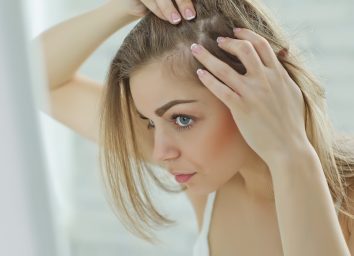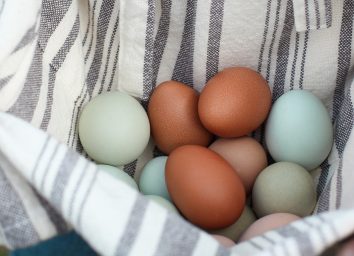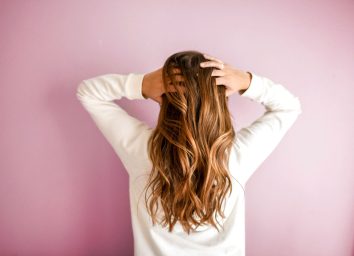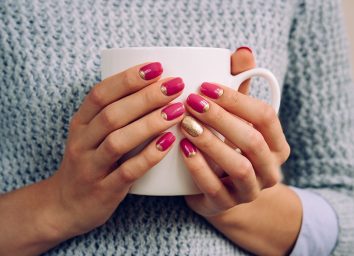Hair Supplements: Miracle Drugs or Hoax? Experts Weigh In
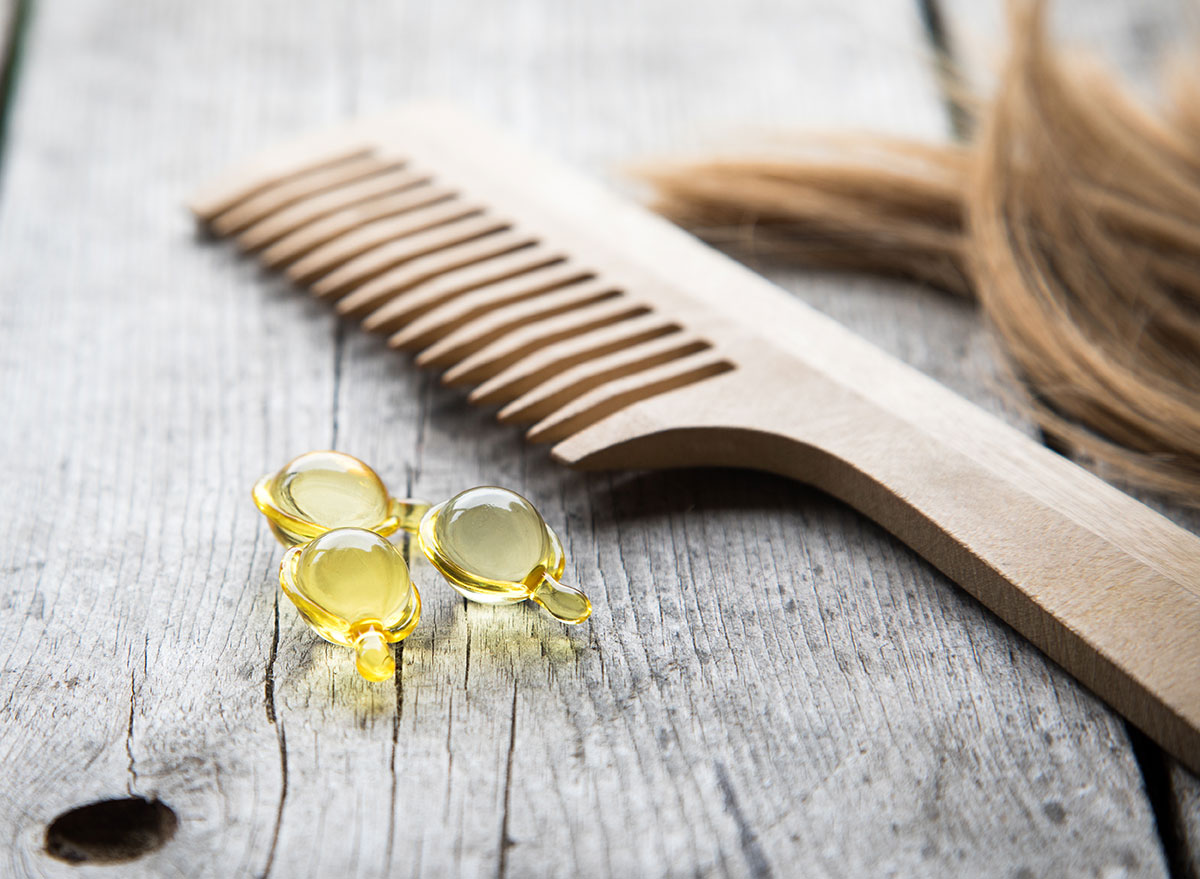
Popular hair supplements such as biotin are often touted for their ability to boost hair health. Proponents say that the B vitamin helps to thicken locks and make manes appear longer and stronger. But are we all really in need of a biotin supplement for a better-looking blowout?
Below, we dive into the research on biotin for hair, explaining how the vitamin works in the body, where it can be found in foods, and whether science says it's safe for you to supplement B7 without a deficiency.
What is biotin?
Biotin, or B7, is one of the eight B vitamins that play a critical role in the body.
"Biotin helps the body convert food into usable energy," says Cynthia Sass, RDN, CSSD, a Los Angeles-based performance nutritionist. "It is needed for the metabolism of carbohydrates, proteins, and fats; for fetal development; and to produce healthy hair, skin, and nerves."
How exactly does biotin affect hair?
While the mechanism isn't completely understood, it is known that biotin plays a role in the structure of keratin, an important protein that's present in hair and nails, says Wendy Bazilian, DrPH, RDN, nutritionist, and author of the Eat Clean, Stay Lean series. Because biotin deficiencies are rare, research supporting the use of B7 supplements as a treatment for hair loss is limited.
Can biotin be found in foods?
Good news: Biotin is found in good-for-you foods that you probably already eat.
"Sunflower seeds, sweet potato, almonds, spinach, avocado, and broccoli all provide biotin," says Sass.
According to the National Institutes of Health (NIH), beef liver is among the most biotin-rich foods around. Because there's a good chance beef liver isn't your go-to source of protein, know this:
"Eggs, salmon, and tuna are also good sources of the vitamin," adds Sass.
As for whether you can overdo it on biotin from food, it's highly unlikely. There's no evidence that an excess of biotin can have toxic effects on humans.
What does research say about taking biotin supplements for better hair?
Most of the research around biotin consists of case studies that only assessed individuals or small samples, so the evidence remains limited.
"Whether supplementing with the nutrient benefits hair is not totally clear from a research standpoint, but much 'anecdotal' evidence exists and people swear by it," says Bazilian. "Of course, anecdotal evidence is not scientific evidence, but it can be compelling nonetheless."
One population that often swears by biotin supplementation is women who have experienced postpartum hair loss. Bazilian tells Eat This, Not That! that many of her clients have reported improvements in hair regrowth by adding daily biotin supplements and collagen peptides to their routine after losing hair post-pregnancy.
Just remember: hair loss can be multifactorial. Antibiotic usage and gastrointestinal conditions, for example, can lead to low serum levels of B7.
"In short, hair loss may be a symptom of another root problem that needs to be addressed, and the amount of biotin, or any other supplements, taken should be based on those underlying issues," says Sass.
Should everyone take supplements for better hair?
While we all want longer and stronger locks, there's no real reason to up your biotin intake if you don't suffer from a B7 deficiency. According to a 2017 review published in Skin Appendage Disorders, "there is lack of sufficient evidence for [biotin] supplementation in healthy individuals."
Bazilian agrees.
"I don't know that there's anything to gain [from biotin supplementation] if you're not showing areas of potential insufficiency," she says. "Since the research is limited even when there is hair loss, it may be a waste of money to expect or hope for [results] that aren't needed."
Plus, biotin is a water-soluble vitamin, which means the body excretes any amount that surpasses its needs in the urine.
The bottom line: if you're taking biotin supplements without an active deficiency of the B vitamin, there's no guarantee your hair will noticeably improve.
Deficiencies aside, how much biotin should I consume daily?
The Adequate Intake (AI) for biotin is 30 micrograms per day for men and (non-breastfeeding) women over 19.
"The AI is the level assumed to ensure nutritional adequacy," says Sass.
Currently, there's no Tolerable Upper Intake level (or UL) established for biotin, as there is no evidence that a high intake can have adverse health effects. That said, Sass recommends those dealing with hair loss stick with a supplement that contains between 500 micrograms and 1 milligram of biotin. She also stresses to always keep overall health status in mind.
"My recommendations are very individualized," she says. "I recommend doses based on what else is going on with my client."
One word of caution: taking biotin supplements can interfere with certain lab results, says the Food and Drug Administration (FDA). According to a 2017 report published by the FDA, biotin can bind with specific proteins that are often assessed to test for health conditions like cardiovascular disease. The result can be falsely elevated or diminished levels of important biomarkers that can, in turn, lead to inaccurate diagnoses. Always report any supplements you are taking before getting lab tests done.
How do you choose the right hair supplement?
If you are dealing with a biotin deficiency, look for a brand that follows GMP, or good manufacturing practices (which will be stamped on the label) when choosing a supplement, recommends Bazilian. It should also be third-party tested. Bazilian is a fan of biotin supplements made by NOW Foods, while Sass likes those from Country Life.
If you aren't dealing with hair loss or a biotin deficiency, simply aim to consume an adequate amount of the vitamin from whole foods. And as with any change you make to your diet, closely monitor how you feel for a few days to ensure no adverse side effects appear.
"It's unlikely, but we should all generally monitor how we do with new additions to our routines," says Bazilian.
Bottom line: There's a good chance you won't wake up looking like Rapunzel overnight if you start taking biotin. It's not truly necessary unless you have a deficiency, but there isn't evidence it will cause any harm if you do decide to take a supplement. If you're curious, try it out for yourself. There's no guarantee it will work, but it can't hurt if you're interested in trying biotin for hair growth.
